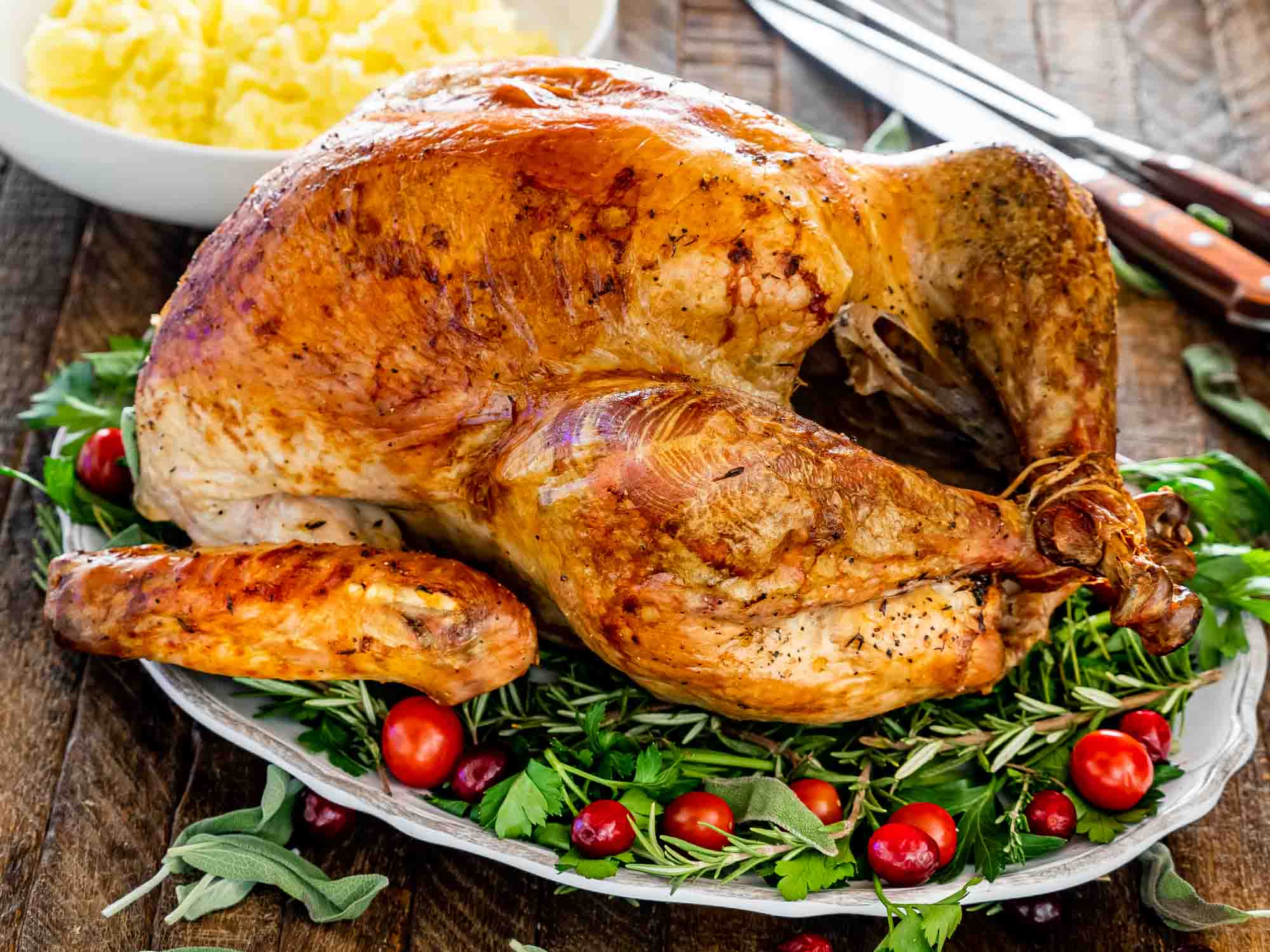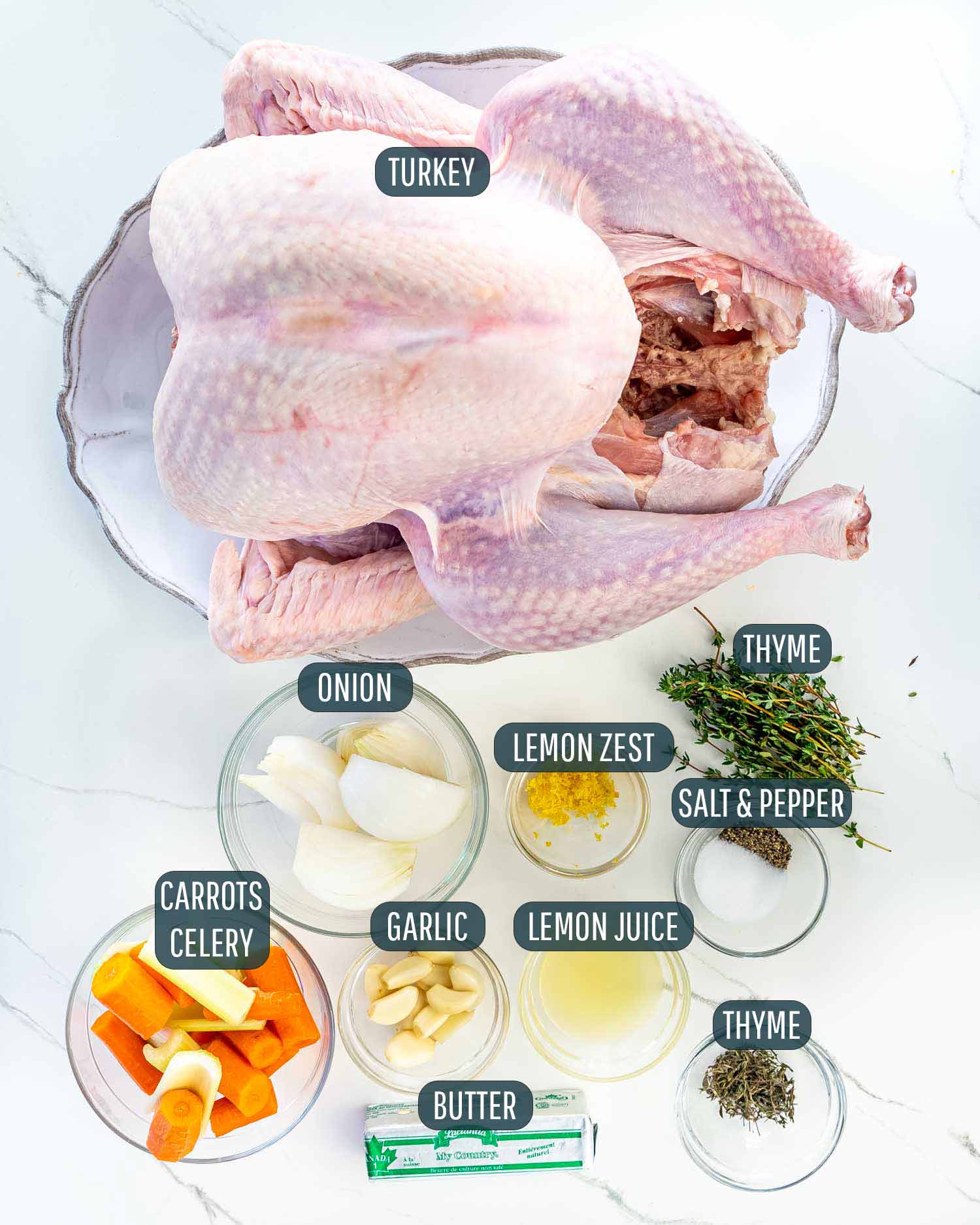How to Roast a Turkey – learn easy techniques to perfectly roast a turkey. Step by step instructions from start to finish.
The age-old question: to cover or not to cover your turkey while roasting? The answer, like many things in life, isn’t a simple yes or no. It’s a bit of both, actually.
Covering Your Turkey:
- Moisture Retention: Covering your turkey with foil for the majority of the cooking time helps trap steam, creating a moist environment that prevents the bird from drying out. This is especially important for the white meat, which tends to be leaner and more prone to dryness.
- Even Cooking: Covering the turkey helps ensure even cooking throughout, especially for larger birds. The foil acts as a barrier, preventing the breast from overcooking while the legs and thighs catch up.
Uncovering Your Turkey:
- Crispy Skin: The holy grail of turkey roasting is achieving that golden-brown, crispy skin. To achieve this, you need to remove the foil for the last 30 minutes or so of cooking. This allows the skin to directly contact the heat, browning and crisping up beautifully.
- Temperature Control: Uncovering the turkey allows you to monitor the internal temperature more easily. This is crucial for ensuring the turkey reaches a safe internal temperature of 165°F throughout.
The Best of Both Worlds:
So, the key to a perfectly roasted turkey is to utilize both covering and uncovering techniques. Start by covering the turkey with foil for most of the cooking time, then remove the foil during the final stretch to achieve that crispy skin.
Additional Tips:
- Brining: Brining your turkey before roasting is another excellent way to ensure a moist and flavorful bird. The salt solution helps retain moisture and adds extra flavor.
- Basting: Basting the turkey with butter or pan drippings throughout the cooking process helps keep the skin moist and adds a delicious flavor.
- Resting: Once the turkey is cooked, let it rest for at least 30 minutes before carving. This allows the juices to redistribute, resulting in a more tender and flavorful bird.
Roasting a turkey doesn’t have to be a daunting task. By following these simple tips, including the strategic use of covering and uncovering, you can achieve a perfectly cooked turkey that will impress your guests and leave them wanting more. So, grab your favorite recipe, preheat your oven, and get ready to enjoy a delicious and satisfying Thanksgiving feast!
Basic Roast Turkey Recipe
Well with Thanksgiving and Christmas right around the corner, it’s time to roast a turkey. I love this season, it’s my favorite time of the year. You can’t turn on the TV without seeing a Christmas movie, and I just can’t resist watching them all. How can you not? I can watch Christmas movies all day long.
So have you roasted a turkey before? Don’t be scared, it’s just a big bird. Over the years, I’ve watched my mother roast turkeys over and over again. I love everything about roasting a turkey. The smell in the kitchen, the holiday atmosphere all around and of course, eating that delicious turkey.
This recipe here for a roast turkey is a simple basic turkey recipe. I seasoned the turkey with salt and pepper and brushed it liberally with a butter that had a lemon flavor.

How To Thaw A Turkey
The safest and easiest way to thaw a turkey is in the refrigerator, but it takes the longest. It will take a few days, depending on the size of your turkey. Toss in the turkey, cover with a pan to catch any drips, and refrigerate for a few days. Allow 24 hours for every 5 pounds of turkey.
You can brine the turkey while it’s still partially frozen, whether it’s a wet or dry brine.

- Turkey: I usually roast turkeys weighing between ten and twelve pounds.
- Butter – Used to add lovey richness and buttery goodness. But to keep the sodium intake under control, always use unsalted butter.
- Lemon: A fresh lemon’s zest and juice are used to add a little acid, which tastes amazing when combined with butter and garlic cloves.
- Thyme – Use fresh thyme for the best herby flavor. You are welcome to add more fresh herbs, like bay leaves, sage, or fresh rosemary.
- Salt: To make any turkey tasty, it’s essential to season it well with salt.
- Black Pepper – Regular ground black pepper is perfect.
- Add the onion inside the turkey’s cavity to enhance its flavor and keep it moist.
- I enjoy adding carrots and celery to my roasting pan to enhance the flavor of my gravy.
- Garlic: For the best flavor, use freshly peeled cloves.
Do you cook a turkey covered or uncovered?
FAQ
Should a turkey be covered or uncovered when roasting?
Do you put water in bottom of roasting pan for turkey?
Is it better to cook a turkey at 325 or 350?
